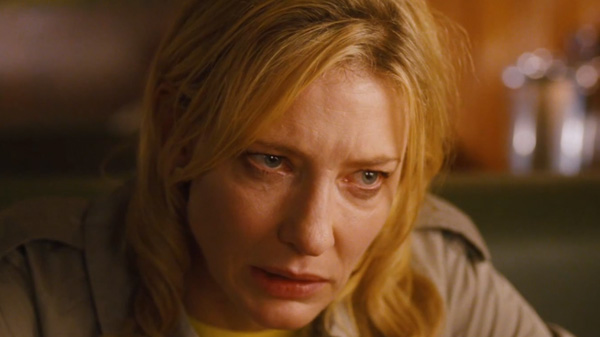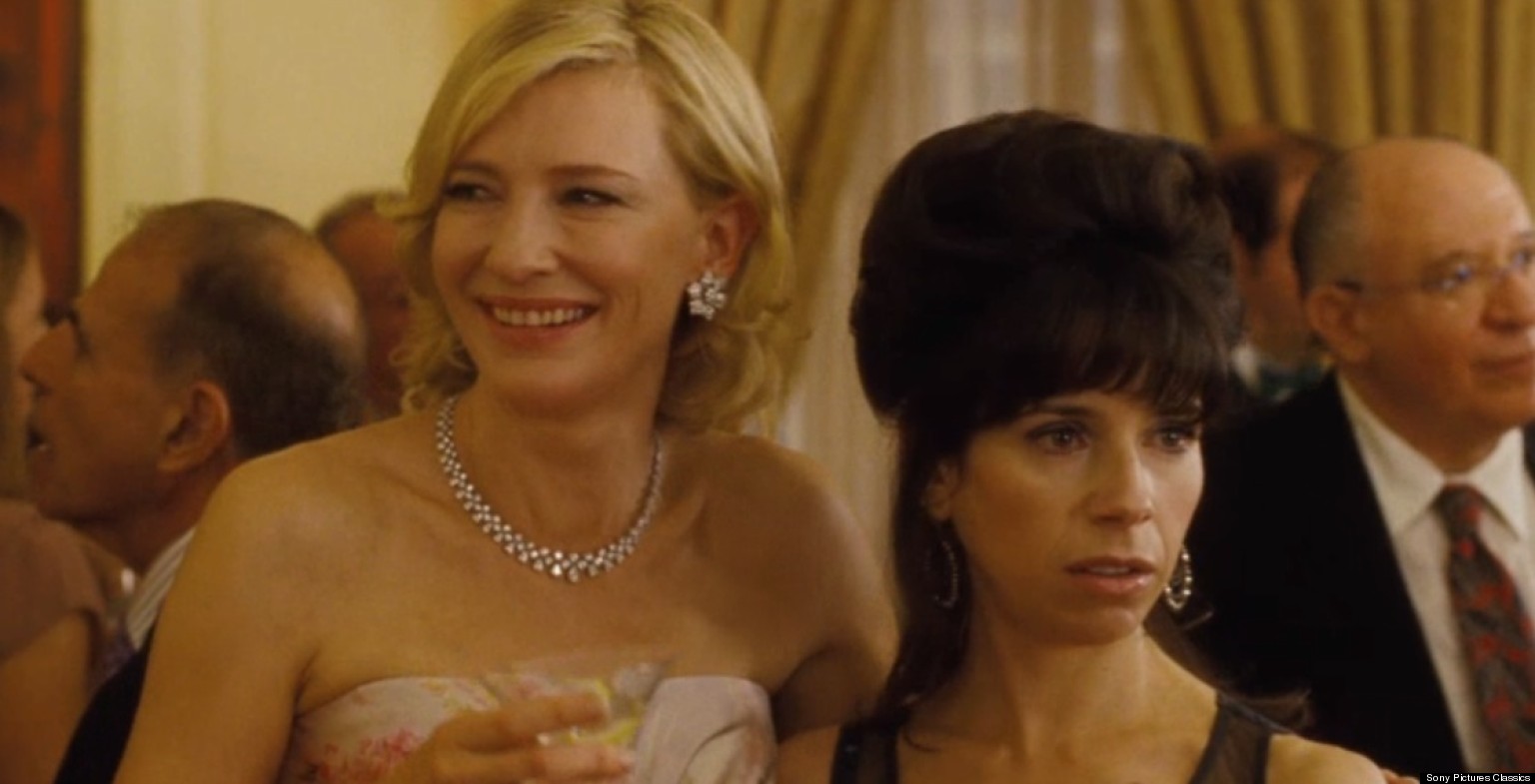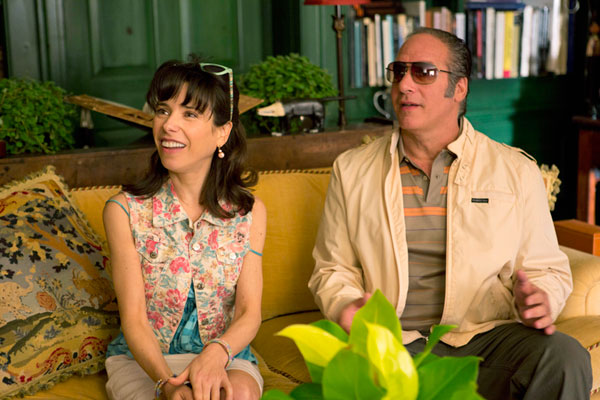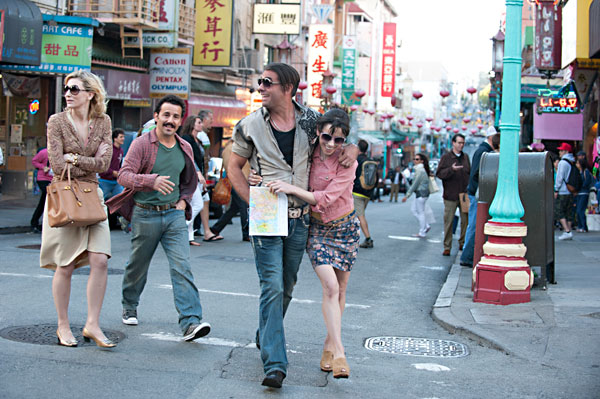Culture
Movie Review: “Blue Jasmine”
By: Scott Pfeiffer
Posted on:
This year’s Woody Allen picture, Blue Jasmine, showcases an unlikely ensemble cast led by Cate Blanchett. She plays a woman who calls herself Jasmine. When we first meet her, she’s buttonholing an old lady on a plane, running down her life story for her captive audience at the very moment when she’s lost her equilibrium, her home, her life. She's a bundle of nerves, deep in denial. We watch her unravel from there.
To structure his story, Allen weaves past events in and out of the present moment, so that the past informs the present and the present informs the past. In fact, in its treatment of memory the film seems to be remarkably spot-on. A night or two ago I fell to flipping through Diane Ackerman’s An Alchemy of Mind, her book on "the marvel and mystery of the mind," and it seemed to speak to what's going on in Jasmine's tortured mind in this movie.
Telling stories about what happened to us is the way we cement memories, Ackerman writes. However, the source of a memory can be slippery. Are you remembering something that really happened, or are you remembering the story you've told yourself? As Jasmine keeps telling herself (and anyone who will listen) "Blue Moon" was the song that was playing when she and her husband, Hal, met. She's trying to secure that moment, even as her life falls away around her.

Jasmine, who has a tremendous amount of class-anxiety, shot to the top of the social strata by marrying Hal (Alec Baldwin), a money manager. Turns out he was playing a Ponzi scheme with his investors' cash. As Hal, Baldwin is guileless and likeable: You can see why nobody knew what he was up to (or, in some cases, didn't want to know).
Jasmine touches down in San Francisco, intending to drop her bags on the doorstep of her sister Ginger. Ginger is a happy, sweet working-class girl who Jasmine secretly feels is "not too bright." She's played by Sally Hawkins, a delight. Hawkins modulates the effusive spirit that marked her unforgettable turn as the unsinkable Poppy in Mike Leigh’s Happy-Go-Lucky (unforgettable to me, annoying to others), and convincingly transmutes her thick London accent. She is such a smart performer, and, I think, quite fetching.
Both sisters were adopted. They couldn't be more dissimilar physically or temperamentally. Jasmine is blonde, blue-eyed and tall with classical cheekbones. Ginger looks a bit daffy with her big front teeth. They're a bit like duckling and swan.

San Francisco is a character in this picture, just as Barcelona, Paris, Rome and London have been over the last decade (Woody the NYC man continues to roam). To signal the status attained by Dwight (Peter Sarsgaard), an aspiring congressman whose aw-shucks demeanor hides a social climber every bit as pitiless as Jasmine, Allen pans across the bay to the stunning view of the Golden Gate bridge from Dwight's porch.
As played by Bobby Cannavale, Ginger's boyfriend Chili is a physical, vibrant presence, so much so that the evocation of Brando doesn't feel like a stretch (some are calling Blue Jasmine Allen's answer to A Streetcar Named Desire). He's tasteless, vulgar, strong; his body carries the implied capacity for a rough tumble of some stripe. Still, he’s good-hearted and good-humored, and his love for Ginger is pure.
Ginger’s ex, another big lug, is sympathetically played by none other than '80s shock comic Andrew Dice Clay (in the narrative Jasmine tells, he beat Ginger).

Though Blue Jasmine is more light tragedy than comedy in tone, its comic moments flow from class differences. Jasmine can barely stand Ginger's loud kids or Chili's crew who come over to watch the fight. The funniest scene in the movie is the ill-advised "double date" where Jasmine is introduced to Chili and his dorky pal Eddie (Max Casella), who instantly comes down with a crush on Jasmine.
But even if Ginger and Chili's sartorial choices are played for laughs (and their look really is something to see), Blue Jasmine is notable for Allen’s warm look at working-class culture. Ginger’s home, a walk-up apartment, is warm and cozy (I fell to musing about how space itself denotes class. Ginger lives in close quarters, whereas Hal and Jasmine's opulent apartment, shown in flashback, is vast, roomy). Ginger and Chili are happily, playfully physical with each other. Ginger's dalliance with Al (Louis C.K.), a guy she meets at a party, happens only because Jasmine constantly tells her that Chili is low class, a "loser."

Cate Blanchett is one of the greats, of course. She's willing to make herself really ugly here. I won't forget her withering, indeed murderous, glares from beneath lowered brow. I was going to say Jasmine is deeply unlikeable, but maybe she's more pathetic. Though she wants to "make something" of herself, maybe become an interior decorator, she's too strung out and insecure. She can't just take pleasure in living, like Ginger does. Of the prospect of a job working as a receptionist for a dentist (Michael Stuhlberg), she proclaims, "It’s so menial."
As usual with Allen, there is very little score in Blue Jasmine. His camera is observational, quiet, almost serene. Its stillness somehow intensifies the performances and gives some moments an almost dreamlike feel.
Blue Jasmine is not as rich as, say, Hannah & Her Sisters or Crimes and Misdemeanors. Neither is it a whimsical pleasure, a fantasy like Midnight in Paris and When In Rome. Still, it will probably turn out to one of Woody’s more memorable late films. I haven't stopped thinking about it.
Born in Athens, Ohio, Scott Pfeiffer has lived in Chicago since 1993. He did a minor in film at Ohio University back in the day. These days, he knocks about Chi-town, taking in film, music and theater. Read his other reviews at The Moving World.

